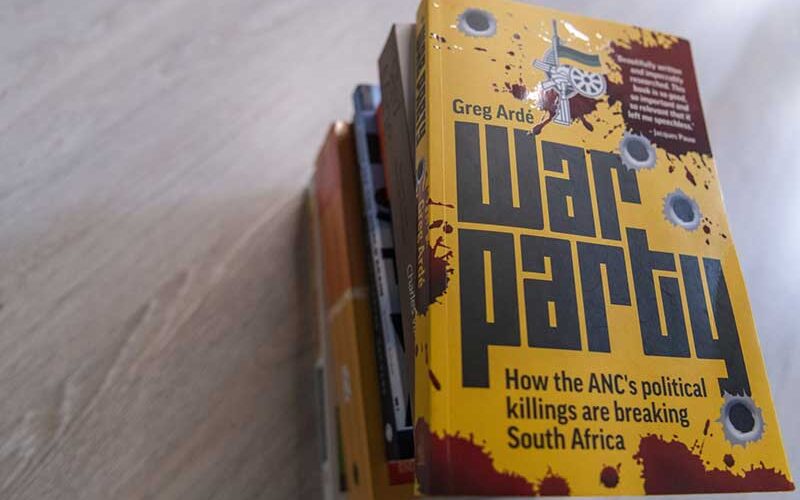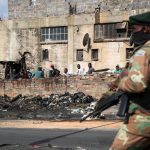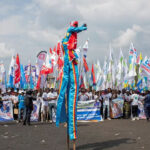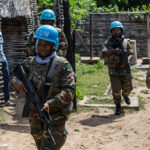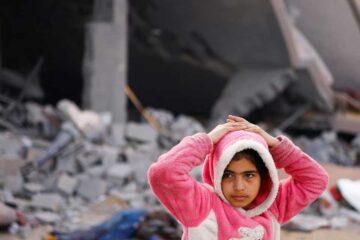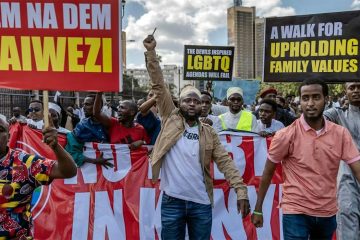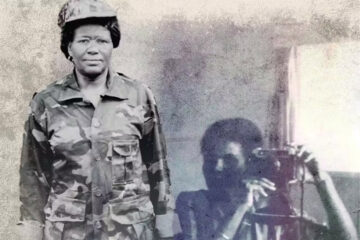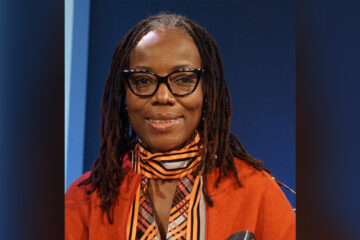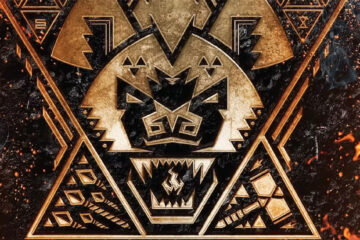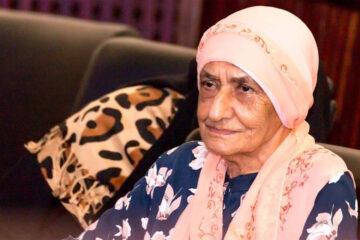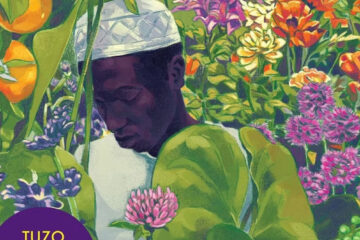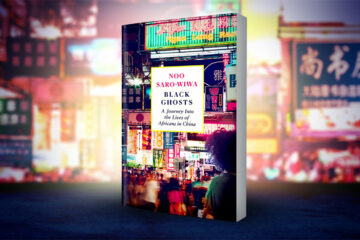JAN BORNMAN
GREG Ardé’s War Party: How the ANC’s Political Killings Are Breaking South Africa is a cautionary tale of how the murderous rot in one province is damaging an entire country.
In the late 1980s and early 1990s, the then province of Natal and the KwaZulu bantustan bore witness to extraordinary violence between Inkatha and the United Democratic Front (UDF), which was allied to the ANC. The violence spread via migrant worker hostels to Johannesburg.
By the early 1990s this violence, estimated to have cost up to 20 000 lives and often described as a regional civil war, threatened to destabilise and derail the transition to democracy. At the last minute, Inkatha agreed to participate in the 1994 election as the Inkatha Freedom Party that saw Nelson Mandela become the country’s first democratically elected president.
Before 1994, political violence in what is now KwaZulu-Natal often took the form of groups of men, sometimes in their thousands, engaging in pitched battles. After 1994, political violence largely took the form of assassinations. These assassinations have been carried out between political parties, and autonomously organised grassroots activists have also been murdered, but most political killings are now a result of power struggles in the ANC.
The scale of post-apartheid political violence in KwaZulu-Natal is staggering. There have been thousands of political killings. Some analysts have likened the ubiquity of political violence in the province to the situation in a number of Central American countries. However, with the media largely centred in Cape Town and Johannesburg, the carnage in KwaZulu-Natal has not received adequate national attention.
Greg Ardé’s new book, War Party: How the ANC’s Political Killings Are Breaking South Africa, seeks to correct this. It is a well-written examination of the political violence in the province, and the scale and brazenness of the corruption that enables this violence. Ardé looks at a number of instances of political violence and uses them to illuminate the wider forces at play. These include the collapse of the ANC into endemic corruption and authoritarianism, failed policing, the legacy of hostels, easy access to firearms and even easier access to izinkabi (isiZulu for oxen but now the name for hired killers or hitmen) from the taxi industry to settle scores or ensure silence when transparency is demanded.
Worryingly, it would seem we have become desensitised to the scale and brutality of the violence in the province. “The horror of political assassinations in KwaZulu-Natal, beyond what it foretells for the country as a whole, is that people have become inured to the violence. The bloody brutality, the cruelty and the human loss have largely become masked in the public eye. It is the new normal,” Ardé writes.
Murder in the classroom
One of the most shocking cases examined in the book is the murder of Vusumuzi Ntombela, who was the speaker of the local municipality in Nquthu and deputy principal at Luvisi Primary School. Ntombela was described as a natural leader and a man guided by strong principles.
Ntombela reportedly clashed with a number of other local politicians after he was told to approve a contract awarded to a certain security company without proper tender procedures being followed. “He was called to a meeting where he was told that if he didn’t resign, he would be dead,” Ardé writes.
On 2 June 2015 Ntombela was shot and killed in his classroom. Elizabeth Nhleko, one of the pupils in his class, also died after sustaining a gunshot wound. She was one of two pupils to be shot in the incident. Sibongiseni Mdakane, the killer, was arrested on the same day and within two weeks he was on trial.
In his guilty plea, Mdakane, who was an absolute amateur, said he was approached by a local ANC heavyweight, Mbhekiseni Khambule, to carry out the hit. Khambule was the bodyguard of the then mayor of Nquthu, Emily Molefe. Mdakane was to be paid R15 000 for the murder and was offered a job at a local security company.
The role of shady security companies as a source of hired killers in the province also emerges as a recurring theme. Much like the izinkabi from the taxi industry – whose influence in corruption and violence is also examined in the book – dodgy security companies and even dodgier guards are commonly used to settle scores and silence critics.
In a country in which there are more private security guards than police officers and soldiers, it has become near impossible for the industry regulator, the Private Security Industry Regulatory Authority, to enforce compliance. Ardé’s book shows just how ineffective the body is. “Try keeping a handle on that,” Ardé writes about the 1.5 million guards on the authority’s books, although only about 500 000 are active, working for about 9 000 security firms.
“Private security guns are meant to be ballistics-tested against make, model and serial number. Guards need to have permits to carry firearms for 12, 24 and 72 hours. While guards legitimately checked out company guns, they also carried private guns and then spotter cars driving nearby spirited them away before the cops arrived,” Ardé writes.
Caught but not forgotten
Another consistent theme that Mdakane’s guilty plea shows is that even for those who are caught – mostly just small fry and insignificant in political terms – plans will be made to ensure that they are looked after. One such example is how Thandeka Nukani, a former mayor of Dundee, had her legal fees paid by a local ANC branch after people close to her were implicated in the murder of whistle-blower Grishen Bujram. The charges against her were later dropped and she lost her mayoral job, but she was re-employed as a personal assistant to the mayor of Umzinyathi District Municipality. This shows that the problem of political violence is not, at all, a case of a “few bad apples”.
Ardé’s book shows just how systemic the rot is in the province. Following the work of other writers, Ardé traces the beginning of the systemic rot back to the late John Mchunu, who was described as having been an Inkatha “warlord” before he joined the ANC. He became the chairperson of the party in the eThekwini region in 2000. “[Mchunu’s] rule was characterised by brazen repression and even assassinations. And then it got worse. Killings increased and corruption became more blatant,” Ardé writes.
Mchunu is a little-known figure outside of Durban, but he actually played a huge role in national politics. It was Mchunu who organised the campaign to support Jacob Zuma during his rape trial and then to contest for the leadership of the ANC. He is also said by insiders to have been behind the armed attack on the shack dwellers’ movement Abahlali baseMjondolo in the Kennedy Road settlement in 2009.
The rot escalated after Mchunu’s death in 2010. Zandile Gumede, appointed as eThekwini mayor in 2016, is said to have openly associated with and supported criminal elements. Abahlali baseMjondolo, which is a significant political force in Durban, declared that her “governance has been characterised by gangsterism and terror”.
Ardé’s War Party follows these developments and shows how dirty politics is threatening to unravel the post-apartheid project at the seams. The rot in KwaZulu-Natal is profound, and it has already shaped national politics in deeply damaging ways. If it is not addressed, the intersection between gangsterism and politics that has long festered in the province may well continue to have serious implications for national politics in the future.
War Party is essential reading for anyone who wants to understand how the tender system, the politics of patronage, the merging of politics with the underworld and the willingness to crush those who stand in its way have resulted in what grassroots activists in Durban have called “the politic of blood”. – NEW FRAME

